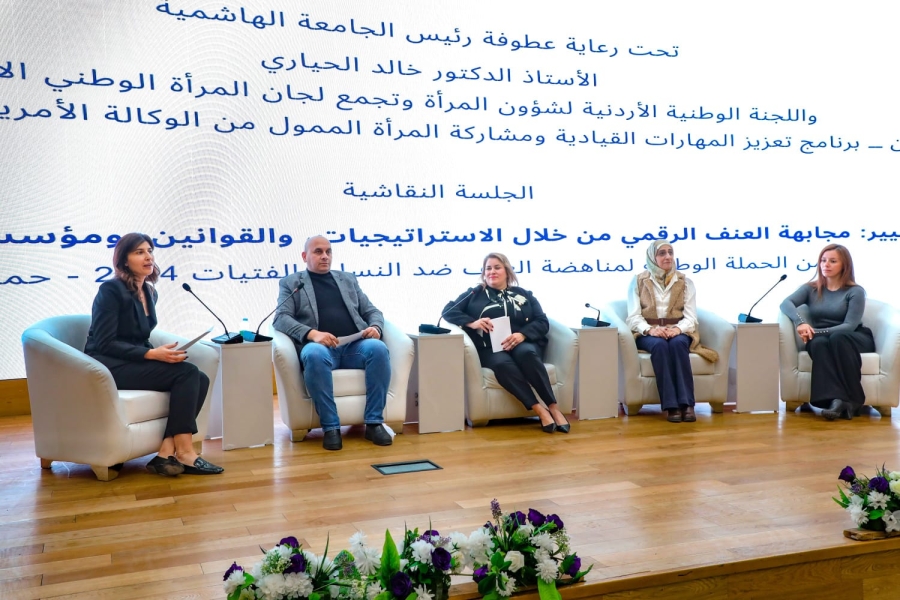الأنباط -
Reducing digital violence against women was the focus on a roundtable discussion organized to coincide with the global 16 Days of Activism Against Gender-Based Violence campaign. Organized by the Jordanian National Commission for Women in collaboration with the USAID Tawazon – Promoting the Voice and Leadership of Women Activity, Jordan National Forum of Women, and the Hashemite University Center for Women's Studies, the pivotal dialogue was titled "Empowering Change: Tackling Digital Violence through Strategies, Laws, and Civil Society.” Held on December 2 at Hashemite University, the event also featured participation from the Cyber Crime Unit of the Public Security Directorate, the Independent Election Commission, and the USAID Sawt – Empowering Civil Society and Media Project.
The event addressed critical issues related to digital violence and its impact on women and girls in online spaces. Discussions centered on the role of national cybersecurity strategies and the Cybercrime Unit in preventing digital violence, safeguarding women from online threats, and fostering digital security. The dialogue also highlighted how national institutions such as the Ministry of Digital Economy and Entrepreneurship and the Public Security Directorate, through its Cybercrime Unit, are raising awareness about digital violence and establishing mechanisms to protect women in the digital realm. Furthermore, the event underscored the importance of collaboration among governmental bodies, educational institutions, and civil society in creating a secure and rights-respecting digital ecosystem.
Dr. Nasreen Al-Sayed, Deputy Secretary-General of the Jordanian National Commission for Women, opened the discussion stating, "violence against women and girls is one of the most widespread human rights violations globally, with one in every three women experiencing some form of digital violence, whether psychological or privacy breaches.” She emphasized the growing danger of digital violence against girls in society.
A particular focus was placed on raising awareness within local communities about the signs of digital violence and the importance of proactive efforts to combat it. The participants explored the challenges women face during parliamentary elections, with an emphasis on strategies to adapt, protect and recover from online threats. Discussions also addressed the implications of the Cybercrime Law on freedom of expression and privacy, especially its impact on journalists and activists. Participants also offered recommendations to enhance the law’s enforcement to better protect digital spaces while balancing national security concerns.
"Digital violence is not just a technological issue, it is a barrier to gender equality and a threat to women’s participation in public life,” said Roselle Agner, Chief of Party for the Tawazon Activity. "This event is a vital component of our collective efforts to raise awareness about digital violence and its devastating impact. At Tawazon, we recognize that addressing this issue requires effective strategies, strong legislation, and community commitment. Together, we must create safe online spaces where women and girls can thrive, free from fear and intimidation. These efforts are an essential part of our mission to build safer, more inclusive communities for everyone."
The event concluded with participants emphasizing the importance of unified national and community efforts to raise awareness and protect women and girls from digital violence. They called for strengthening legislation and developing programs that contribute to creating a safe and inclusive digital environment for all.

